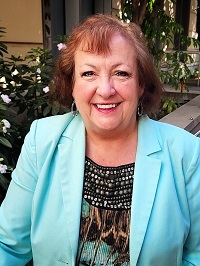Justice Services
Assisted Outpatient Treatment
Assisted Outpatient Treatment (AOT) is court-ordered outpatient mental health treatment for individuals with serious mental illness who are unable to live safely in the community, but who refuse to participate in treatment on their own. The law that allows court-ordered treatment is sometimes called “Laura’s Law”. SLO Behavioral Health’s AOT program started in March, 2016, and is funded by the Mental Health Services Act.
AOT Program:
SLO Behavioral Health staff provide outreach, assessment, program support and coordination with the court. Services offered to AOT clients include:
- Co-Occurring treatment to address both mental health and substance use disorder needs
- Rehabilitation services to assist clients in learning and utilizing skills to improve self-care, social support system, and health
- Intensive case management to support clients in accessing housing, financial, vocational, health care, and social support services, including voluntary mental health services
For Brochure, Click here.
Behavioral Health Bridge Housing
The BHBH Program provides quality, affordable housing for individuals who may have few, if any, alternatives. To reach this goal, TMHA will work alongside with the Behavioral Health Department to implement an array of support services assisting tenants in achieving needed residential stability and, whenever possible, necessary linkages with their families, and the community at large.
The main objective is to establish a setting where residents can cultivate a feeling of home and:
- Increase the housing options and services for individuals facing homelessness with severe behavioral health issues;
- Prevent a relapse into homelessness; and
- Improve personal mental health and overall wellness.
Behavioral Health Treatment Court
This service provides treatment opportunities for individuals who have behavioral health needs and have become involved in the criminal justice system. Upon successful completion individuals, depending criminal charges, may have their probation terminated early. Individuals will need to be on formal probation and have a minimum of one year remaining on probation to participate in this treatment court. Services include, case management, therapy, psychiatrist visits and medication management.
Community Assistance, Recovery and Empowerment (CARE) Act Court
As of December 1, 2024, San Luis Obispo now offers CARE Court to help community members who have been diagnosed with schizophrenia and other psychotic disorders the support and care they need.
This new civil court process is designed to link individuals who have Schizophrenia and other Psychotic Disorders to County Behavioral Health services, under the oversight of a judge, for up to 24 consecutive months. CARE is meant as a diversion process to prevent hospitalization, conservatorship or incarceration.
Behavioral Health services for individuals enrolled in CARE Act Court include a clinically-indicated, individualized treatment plan, with supportive services and a dedicated team. Housing resources are included in CARE and will be identified based on the participants needs. For more information about CARE Court, please continue reading below, or visit one of the following State websites:
Court Screening
Behavioral Health clinician provides treatment screenings in the San Luis Obispo Court house. Screenings provide treatment referral options, level of care recommendations, and treatment court referrals. Referrals consist of treatment referrals for the following services:
- Adult Drug court
- Adult Treatment Court Collaborative (ATCC). Co-occuring treatment court
- Mental Health Diversion Court (MHDC). Co-occuring pre trial treatment court
- Drug and Alcohol level of care
- Mental Health Treatment
Court Screening Appointment Process
- Screening appointments for clients will be made by the persons attorney through email to the Justice Services office using the appropriate referral form.
- Referral form required: Paper or electronic fillable form may be used. The form encompasses the information needed to provide a court screening.
- Send screening form to kcastro@co.slo.ca.us for a screening appointment
- Requires name of Court room, defense counsel, DDA
- Client contract information including date of birth
- Justice Services office will schedule the appointment
- In custody referrals will be sent to the screeners for time slots at the jail
- Out of custody referrals will be contacted within 24 hours with a screening time (zoom or in-person). Zoom link or appointment location will be provided at the time the appointment is made.
- At the time appointments are made Justice Services will collect releases to disclose the outcome of the screening to the court involved entities (including Probation) and release to talk to potential housing options if this will be needed at determination.
Justice Services Treatment
The co-occuring services in the Justice Services division provide court mandated treatment to adults (18 years and older) who are experiencing mental health and/or substance use disorders.
Mandated treatment court services include:
- Screening
- Assessment
- Treatment Planning
- Psychotherapy
- Medication Services
- Psychiatry
- Case Management
Other programs include:
Mental Health Diversion Court (MHDC)
The mental health diversion court is a pre-plea program that is designed to educate and promote the understanding of healing and wellness by providing an integrated treatment program. For a period no longer than two years, defendants who are suffering from a mental health disorder and approved for the program are allowed to undergo mental health treatment and support in order to make permanent healthy and positive changes and establish a recovery-based lifestyle.
You can view the participant handbook here.
Co-occurring Treatment Courts (ATCC)
An intensive outpatient behavioral health program that meets the clients' need for substance abuse treatment, mental health wellness, and reduction of traumatic symptoms.
Using evidence-based recovery classes in conjunction with effective ancillary programs, ATCC provides clients with a holistic treatment model to fit their unique and individual needs.
Who can use this service?
Anyone can use this service who has a substance use disorder and criminal justice involvement that is in need of assistance. Program participants must have a substance use disorder and mild to moderate mental health disorder. Participants must be 18 years of age and on formal probation with a minimum of a year left on probation.
